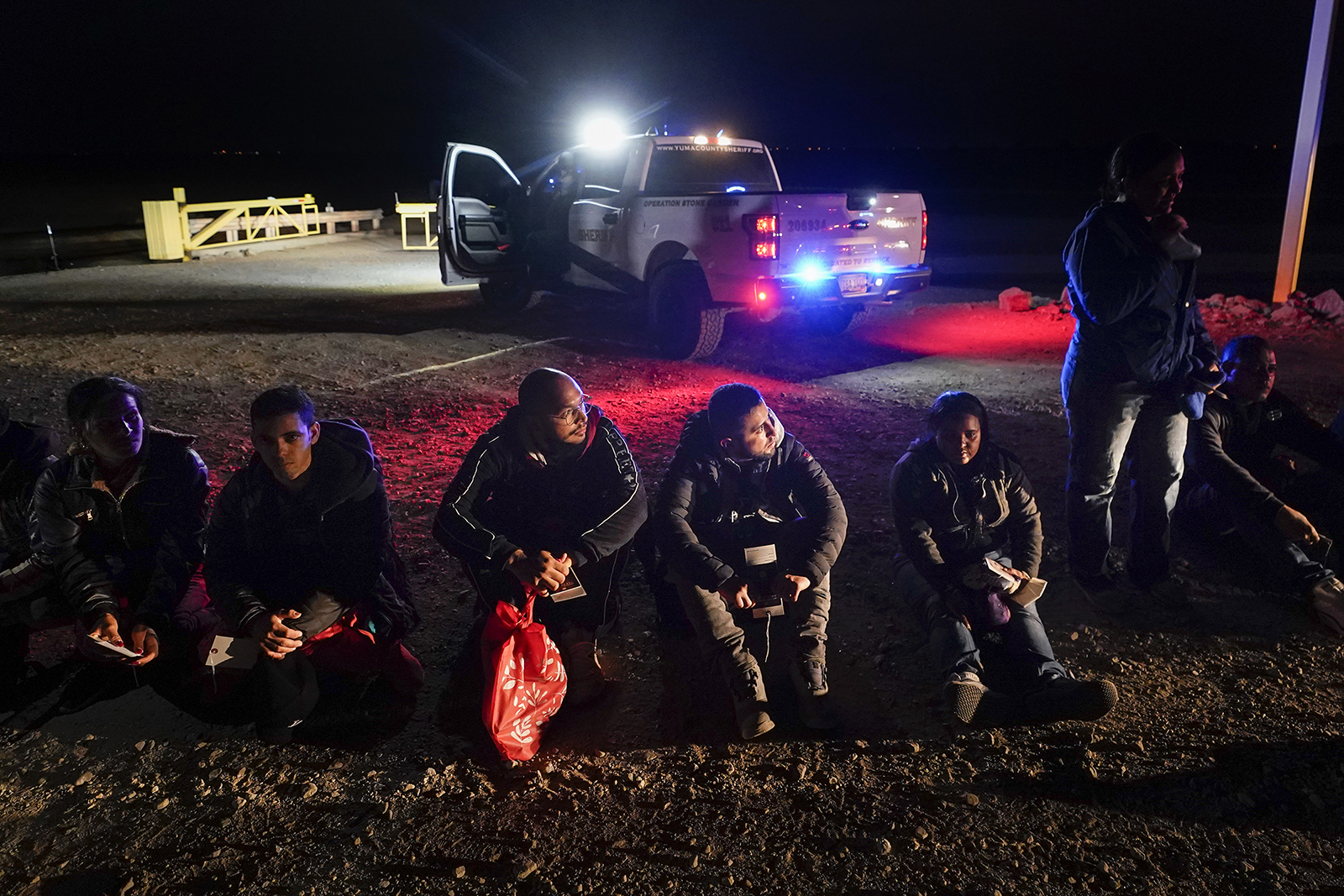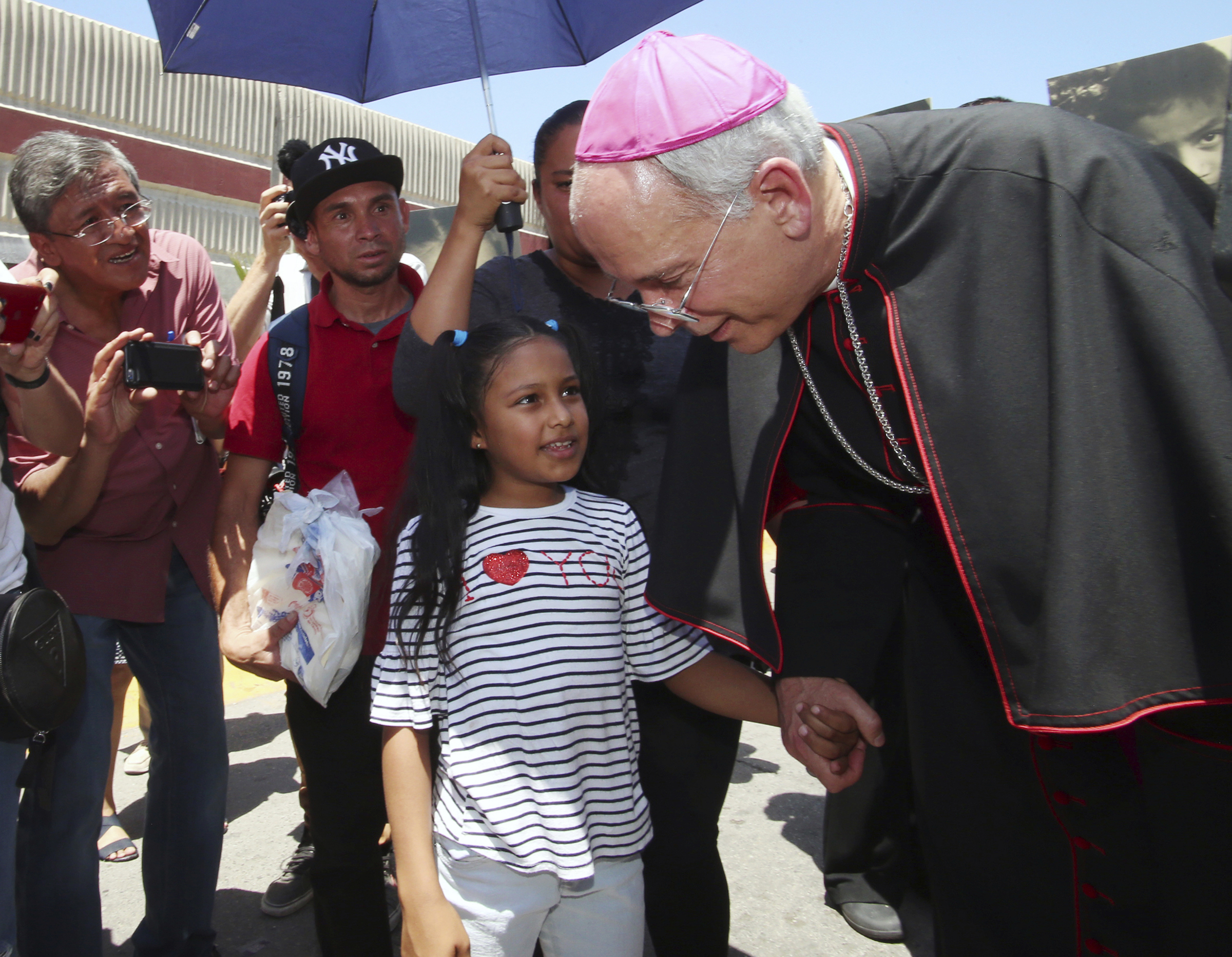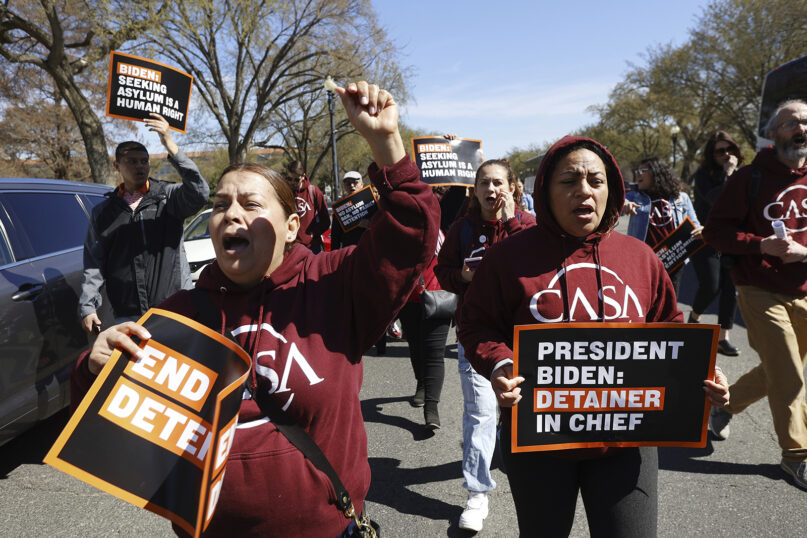(RNS) — Taking advantage of a required public comment period, a broad array of faith leaders and religious groups, including faith-based refugee aid organizations, are speaking out against a proposed federal rule that would generally deny asylum to migrants who arrive at the U.S. southern border without first seeking protection in any country the migrants passed through.
Put forward in late February by the Biden administration, the measure imposes dire limitations on asylum for migrants of any nationality, other than Mexicans, who less rarely travel through a third country to reach the U.S.
The new rules mirror restrictions set forth by the Trump administration that were eventually blocked in court by migrant activist groups, including the East Bay Sanctuary Covenant, a Berkeley, California, nonprofit founded in the 1980s by six congregations committed to providing sanctuary for Salvadoran and Guatemalan refugees. They were represented by the American Civil Liberties Union, the Center for Constitutional Rights and the Southern Poverty Law Center.
“If the Biden administration goes through with the proposed asylum ban, we’ll sue just as we did successfully with the Trump asylum bans,” Katrina Eiland, an attorney with the ACLU Immigrants’ Rights Project, told Religion News Service.
RELATED: Faith-based organizations urge Biden not to enact ‘asylum ban’
Eiland and other critics say Biden’s proposed measure combines two things in the Trump administration’s version: blocking asylum for people who entered the country without going through an official border crossing and barring asylum for migrants who didn’t apply for protection in another country before reaching the U.S. southern border.
U.S. officials say the Biden administration’s measure is different from Trump’s because it offers more exemptions and it makes other legal pathways available, in particular humanitarian parole for Cubans, Haitians, Nicaraguans, Venezuelans and Ukrainians.
But Eiland argued that not all people fleeing danger fall into these nationalities, adding that “seeking asylum is a legal pathway, regardless of how one enters or the route that they take to this country.”
During the 30-day public comment period, which ended Monday (March 27), the ACLU detailed in a 30-page letter its opposition to the proposed rule that “would cause countless people seeking asylum immense, avoidable suffering.” The Southern Poverty Law Center’s 29-page letter calls the new proposal “a new iteration of similar asylum bans the Trump administration attempted to advance.”

Migrants wait to be processed after crossing the border Jan. 6, 2023, near Yuma, Arizona. (AP Photo/Gregory Bull)
Advocates have criticized the Biden administration for not giving groups more time to respond to a rule of this magnitude, that if finalized, will be in place for two years. Administration officials expect the measure to begin when a pandemic-era health order that denies asylum on grounds of preventing the spread of COVID-19 ends.
HIAS, a Jewish organization that is one of six faith-based agencies contracted by the federal government to resettle migrants, objected to what it refers to as “restrictive changes to the U.S. asylum system.”
“We are there for refugees and asylum seekers when and where they need help most,” said Vanessa Dojaquez-Torres, policy counsel for HIAS, in a March 24 letter addressed to federal immigration officials.
“We see firsthand why people are making the unbearably difficult decision to flee their home countries to make the dangerous trip to the U.S.-Mexico border,” she said.
HIAS operates along the migration route from Venezuela, through South America and Central America, as well as in Mexico, and helps migrants with their asylum claims as well as with accessing health, employment and social services. The organization provides free legal representation to refugees and asylum-seekers of all faiths.
Biden’s plans, HIAS said, would “unlawfully deny protection to asylum seekers and require them to seek asylum in countries that do not have functional asylum systems and where they may still be in harm’s way.”
In a March 23 letter, a coalition of 130 faith organizations representing different religions and denominations urged Biden not to reinstate family detention and called on him to reconsider proposed asylum restrictions.
“We’re concerned that the proposed asylum rule may exacerbate the issues prevalent in detention, around access to counsel and due process. It’s plain to see that these policies will sow confusion and instill fear,” the coalition wrote.
The coalition included Hope Border Institute, Church of the Ascension, T’ruah: The Rabbinic Call for Human Rights, Buddhist Peace Fellowship, the Episcopal Church and the United Methodist Church-General Board of Church and Society.

El Paso Catholic Bishop Mark Seitz talks with Celsia Palma, 9, of Honduras, as they walked to the Paso Del Norte International Port of Entry on June, 27, 2019, in Juarez, Mexico. Seitz escorted the girl, her parents and two siblings across the port of entry to U.S. immigration authorities so they could be processed into the U.S. (AP Photo/Rudy Gutierrez)
The Most Rev. Mark J. Seitz, who serves as bishop of the Catholic Diocese of El Paso, has also been outspoken about this proposed rule, saying it is a “significant step backwards at a time when we really need meaningful reform.”
“It is also a policy that perpetuates the misguided notion that heavy-handed enforcement measures are somehow a solution to the realities at the border,” Seitz said in a statement.
Seitz added: “The Catholic Church in the United States has consistently rejected policies that weaken asylum access for those most in need of relief and expose them to further danger.”
The Lutheran Immigration and Refugee Service, another of the faith-based resettlement agencies that contract with the federal government, worked with partners in the Interfaith Immigration Coalition to launch a public comment campaign to mobilize opposition to the Biden’s administration’s proposed rule.
“Voices from the faith community spoke with moral clarity when the prior administration attempted to ban asylum, and today we continue the fight,” said Jill Marie Bussey, director for public policy at LIRS, in a statement.
The public comments, which appear on a federal database, include the voices of priests and ordinary people of faith opposed to Biden’s plan.
Karen Scherer, who is identified as a pastor in the Evangelical Lutheran Church in America, wrote, “Walking alongside people who have fled their homes and people who need help is a core commitment as a Christian living out teachings of our faith. The right to seek asylum is an essential protection for people seeking safety from persecution.”
Michael Wallens, a priest in the Episcopal Diocese of the Rio Grande, said he’s “concerned as a person of faith and an American that our nation is not living up to the commitment to be a beacon of liberty and hope for all people.”
Wallens said he’s part of the Rio Grande Borderland Ministries that serves along the border from Big Bend National Park in West Texas to the Arizona state line.
“I believe this proposed rule would put families and other vulnerable migrants seeking protection along the U.S. southern border in further danger,” Wallens wrote.
The Rev. Karleen Jung, a Lutheran pastor serving two congregations in the Louisville, Kentucky, area, wrote in opposition to the proposed measure, citing a long history in the Lutheran church “of welcoming in and re-settling refugee families, including asylum seekers.”
“We have done this, not only because of the traditions of our faith, but also because of the traditions of our nation as a refuge and haven for the persecuted and destitute,” Jung wrote.
“This proposed rule is heartless and not at all consistent with my values as pastor and believer, and as a U.S. citizen,” she added.
The Associated Press contributed to this report.





